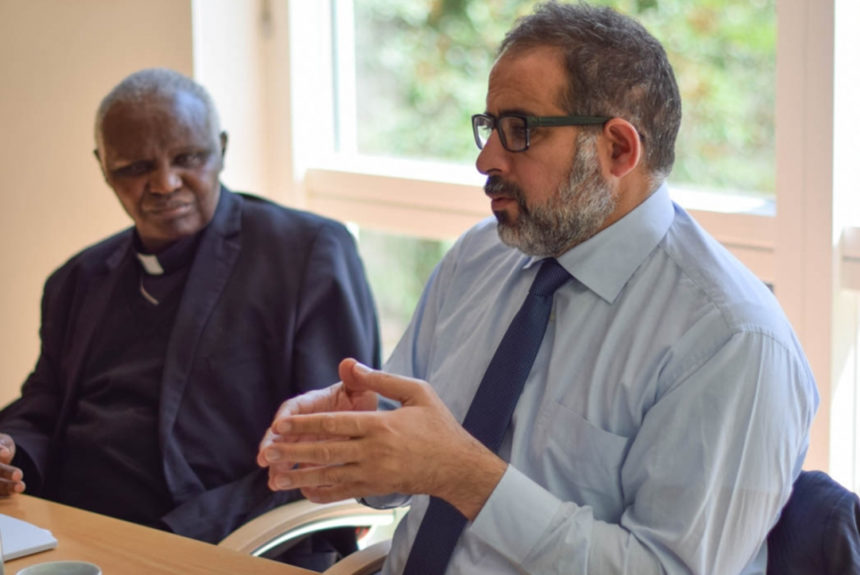Dr. Aref Nayed, Chairman of Libya Institute for Advanced Studies and Senior Advisor to the Cambridge Interfaith Program, joined 15 participants from 6 countries in an intensive workshop exploring ways that traditional leaders can contribute to conflict resolution. The workshop, organized by the Network for Religious and Traditional Peacemakers, was held in Berlin Germany on June 17, 2015 hosted by the Berghof Foundation in cooperation with FinnChurch Aid. This workshop is the second in a series of collaborations between LIAS and the Network. A workshop was held in Amman in April 2015 with key Libyan tribal leaders and traditional religious scholars and Somali peacemakers,
“We are living in dangerous times and we need effective solutions to our problems,” Dr. Nayed said. “Local conflicts have become the world’s problem as they ravage nations across the globe, but the solutions to these conflicts need to be addressed locally through engagement with enduring social structures that have an impact on people’s lives. In the Middle East, and in my country, Libya, protracted conflict is destroying the lives of our people, ravaging our economies and I cannot think of a more important thing to do right now than to come together with experts to look at ways to solve this.

The one-day intensive workshop addressed the role of religion, faith and tradition in conflict and mediation and the needs of Traditional and Faith Oriented Insider Mediators (TFIMs). Owen Frazer, from the Mediation Support Team and Culture and Religion in Mediation (CARIM) program, Center for Security Studies (CSS), ETH Zurich, Switzerland, spoke on the role that religion could play in promoting peace and enabling conflict resolution. All participants stressed the importance of developing a lexicon and conceptual clarity on how to engage religious leaders.
The Berghof Foundation presented case studies from Myanmar, Southern Thailand, Lebanon, Kenya, Mali and Columbia. These and other sessions gave participants a better understanding of TFIMs and helped them investigate their distinct roles in conflict resolution. Organizers also elicited suggestions for pilot projects and other kinds of interventions to promote grass-roots peacebuilding processes.
Participants included Bishop Cornelius Kipng’eno Arap Korir Bishop, Catholic Diocese, Eldoret, from Kenya, and Ibrahim Chamseddine, President of Association for Charity and Culture, Member of the Lebanese Forum for Dialogue and Founder and Imam Chamseddine Foundation for Dialogue in Lebanon, among others.


